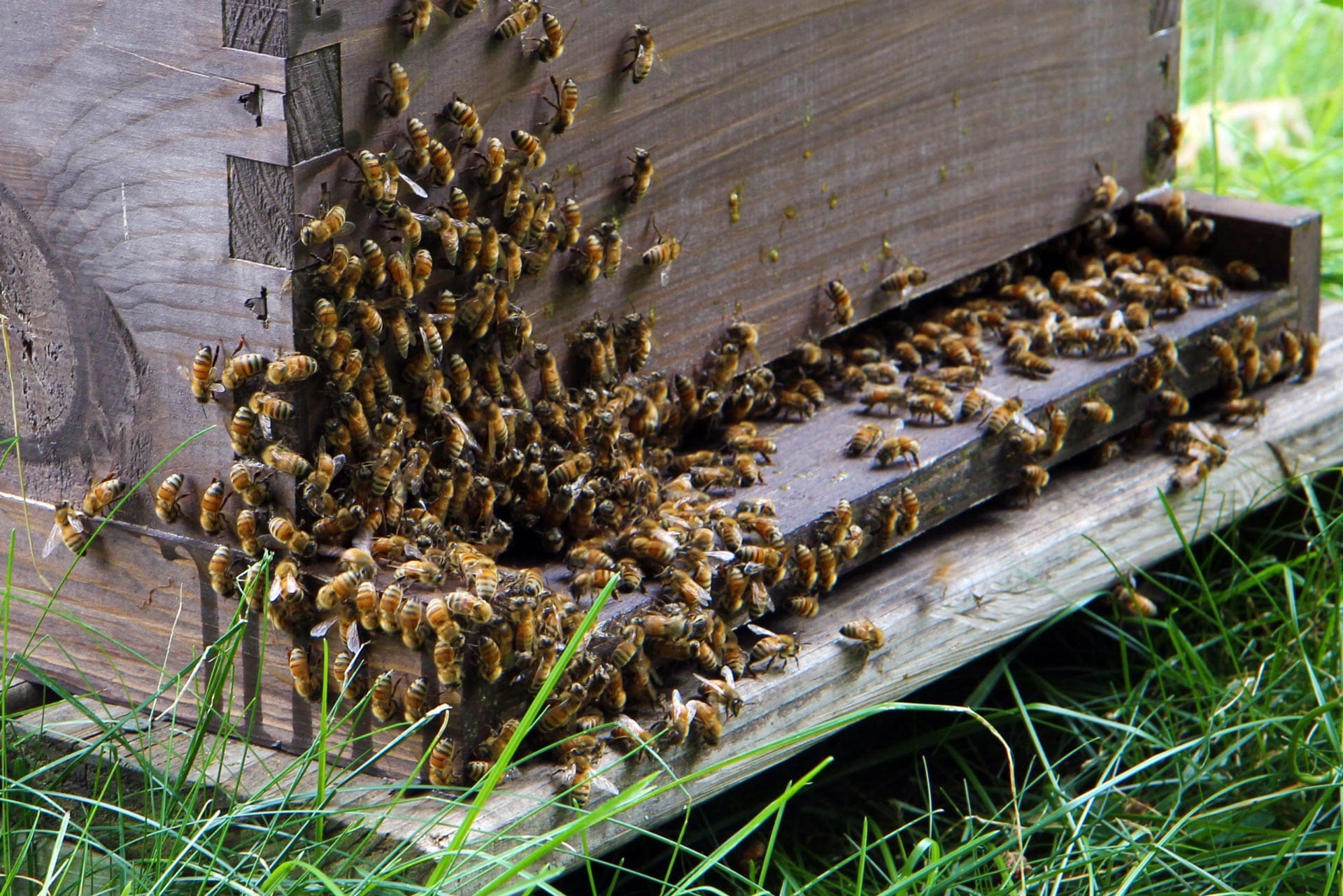Photographer Mary Jo and writer Steve Hoffman became the stewards of some 80,000 honeybees almost by accident. “We got into beekeeping back in 2013 through the indirect intervention of a mischievous friend,” Mary Jo explains. “Once we heard about the Hive to Bottle program, we were helpless to say no.”
She’s referring to the University of Minnesota Bee Lab’s program in which Twin Cities residents play host to hives in their backyards. A qualified beekeeper visits regularly to tend to the insects’ needs and collect research data. Participants, for their part, can lay claim to any harvested honey.
“Last year, our little darlings made us about 120 pounds of honey, which is just about 10 gallons — yes, gallons!” remarks Mary Jo. “Our favorite way to use our honey is a preparation we first encountered during a trip to Greece when we were newly married. On a breakfast terrace one morning, we were served thick, plain yogurt with raw walnuts and a drizzle of honey, alongside strong coffee. We could eat that almost every day of the year.”
The bees will fly as far as a few miles away to find food. For the Hoffman hives in Shoreview, that means standard suburban fare, from clover and dandelions in spring to goldenrod and jewelweed come autumn.
“You can tell what the bees are foraging by the color of the pollen sacks on their legs,” Mary Jo explains. “My favorite is in spring, when the tiny scilla bloom everywhere. The pollen saddlebags are bright blue, as if the bees are wearing denim.”
And while the hives (and the honey harvesting) have become a source of endless entertainment for the Hoffmans, the family of four understands it is part of something much larger than itself. The Bee Lab’s main aim is to promote the health of bee pollinators, and its research focuses on Colony Collapse Disorder, a broad term for the dire situation these creatures face.
“Since 2006, approximately 30% of honeybee colonies have died each winter — about twice what is expected in the industry,” explains Becky Masterman, the Bee Squad’s associate program director (and the Hoffmans’ beekeeper). “Research has shown that the reasons the colonies are dying include pests, pathogens, pesticides and a lack of adequate forage.”
“Bees are in crisis throughout the world,” adds Mary Jo. “Our land-use and food-production models have made the world an unhealthy place for bees, and if we continue losing bees at the current rate, it will be an unhealthy place for us as well.”
“There sometimes seems to be an overwhelming number of problems in the world with no easy or direct solutions,” she continues. “The loss of our bees is potentially one of the most catastrophic. And yet, it is possible to take a very direct, very tangible step in the right direction, by keeping bees in your backyard. You not only reap the aesthetic and philanthropic benefits of doing some real good — but you also get rewarded with all the honey you can eat.”





